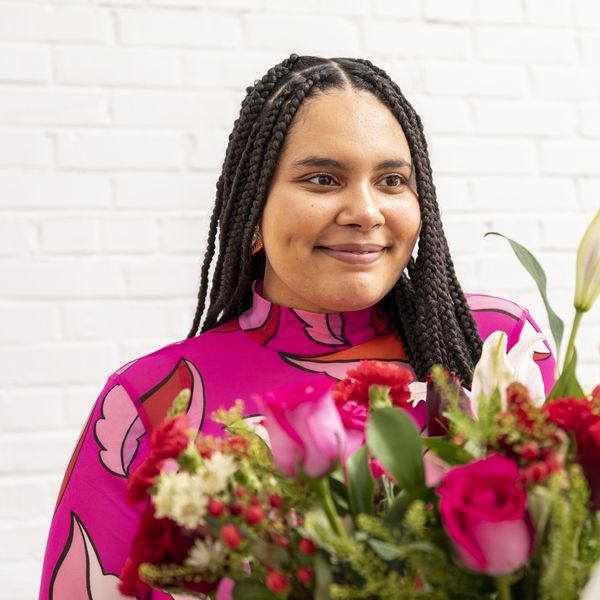
Is Dating All About Practice Or Finding 'The One'?
Dating can be a complicated journey, especially if you are someone who was never taught how to date. It serves various purposes for different people, but two distinct approaches stand out: dating for practice and dating with the intention of marriage.
Understanding the difference between these two approaches can help individuals navigate the world of romance more effectively.
Should We Be Dating for Practice?
As a dating coach for women of color for the past 13 years, I tell my clients all the time that dating is an opportunity for practice. Dating for practice is often characterized by meeting new people, broadening your horizons, and enjoying the process of getting to know others without the immediate intention of tying the knot.
This less pressurized environment is a prime opportunity to learn about yourself, your preferences, and your values in a relationship. By interacting with diverse individuals, you discover what traits, interests, and personalities resonate with you!
Dating for practice and without immediate commitment allows you to take your time and make informed choices. There's no pressure to rush into a serious commitment, and it's acceptable to date multiple people concurrently to find the BEST person for YOU. Dating, like parenting, brings up all of your ‘ish’ to the surface, which gives you the opportunity to heal it (without serious repercussions).
Any unresolved inner child wounds, lack of boundaries, and fear of vulnerability can be examined and changed by using dating experiences to explore the parts of ourselves that we don’t normally acknowledge.

Charles Olu-Alabi/Getty Images
The Argument for Dating for Marriage
“I’m dating with intention (marriage)” is something you’ve probably heard often if you’ve been in the dating scene for a while. While it sounds great, there are some potential pitfalls that you may want to avoid. The aim of dating for marriage is clear: to establish a committed relationship that may lead to marriage. Conversations about the future, family, and life goals are often on the table from the start, which brings a level of clarity to the courtship.
By being goal-oriented, most people dating for marriage will stick to dating longer. This is important because dating is a marathon, not a sprint. The longer you are dating, the more successful you will be. The downside of being goal-oriented is that some will be so focused on getting married that they will overlook some serious red flags because they want to be married so badly and end up in horrible relationships.
Dating for marriage requires a level of selectivity to know what you want, which is great. The downside is that what you want is maybe not what you need.
As someone who helps women get into amazing relationships every week, most of the time (90-95%), their partner doesn’t look like what they imagined, but they feel the way they always imagined. Individuals hyper-focused on marriage may be eliminating people who would be good partners for them because they don’t align with their pre-existing vision of marriage.

Zia Soleil/Getty Images
How Do We Balance Dating for Practice With Dating for Marriage?
It is important to remember that these two dating approaches aren’t mutually exclusive, and people often shift between them as their life circumstances and personal preferences evolve. My recommendation is to combine both and date with strategy!
Dating with strategy looks like:
- Dating online and offline to give yourself the best chance of finding love
- Date without expectations – 97% of people you talk to won’t make it past date three
- Having a phone date before going on a physical date
- Getting clear on your needs (based on what you didn’t get from your parents), not just wants (based on what looks good)
- Widening your net and evaluating potential mates based on your new clarified needs
- Practice your vulnerability (sharing feelings) and boundaries (expressing desires) often
Dating for practice and dating for marriage are two distinct approaches to romantic relationships, each with its unique merits and intentions. The key is to have a dating strategy with your personal goals and values, ensuring that you are on a path that feels right for you at any given stage of your life.
Ultimately, dating is about personal growth and building meaningful connections, regardless of the specific goals you set.
Coach Anwar is a certified dating and relationship coach who has 13 years of experience helping Black and brown women date with strategy, meet relationship-ready men, and get into the best relationship of their lives.
To learn more, you can follow Coach Anwar on IG. Wanna work with Coach Anwar? Click here to book a dating consultation.
Featured image by Lorado/Getty Images
ItGirl 100 Honors Black Women Who Create Culture & Put On For Their Cities
As they say, create the change you want to see in this world, besties. That’s why xoNecole linked up with Hyundai for the inaugural ItGirl 100 List, a celebration of 100 Genzennial women who aren’t afraid to pull up their own seats to the table. Across regions and industries, these women embody the essence of discovering self-value through purpose, honey! They're fierce, they’re ultra-creative, and we know they make their cities proud.
VIEW THE FULL ITGIRL 100 LIST HERE.
Don’t forget to also check out the ItGirl Directory, featuring 50 Black-woman-owned marketing and branding agencies, photographers and videographers, publicists, and more.
THE ITGIRL MEMO

I. An ItGirl puts on for her city and masters her self-worth through purpose.
II. An ItGirl celebrates all the things that make her unique.
III. An ItGirl empowers others to become the best versions of themselves.
IV. An ItGirl leads by example, inspiring others through her actions and integrity.
V. An ItGirl paves the way for authenticity and diversity in all aspects of life.
VI. An ItGirl uses the power of her voice to advocate for positive change in the world.
Let’s make things inbox official! Sign up for the xoNecole newsletter for daily love, wellness, career, and exclusive content delivered straight to your inbox.
You've Never Seen Luke James In A Role Quite Like This
Over the years, we've watched Luke James play countless characters we'd deem sex symbols, movie stars, and even his complicated character in Lena Waithe's The Chi. For the first time in his career, the New Orleans-born actor has taken on a role where his signature good looks take a backseat as he transforms into Edmund in Them: The Scare—a mentally deranged character in the second installment of the horror anthology series that you won't be able to take your eyes off.
Trust us, Edmund will literally make you do a double take.
xoNecole sat down with Luke James to talk about his latest series and all the complexity surrounding it—from the challenges taking on this out-of-the-box role to the show's depiction of the perplexing history of the relationship between Black Americans and police. When describing the opportunity to bring Edmund's character to life, Luke was overjoyed to show the audience yet another level of his masterful acting talents.
"It was like bathing in the sun," he said. "I was like, thank you! Another opportunity for me to be great—for me to expand my territory. I'm just elated to be a part of it and to see myself in a different light, something I didn't think I could do." He continued, "There are parts of you that says, 'Go for it because this is what you do.' But then also that's why it's a challenge because you're like, 'um, I don't know if I'm as free as I need to be to be able to do this.' Little Marvin just created such a safe space for me to be able to do this, and I'm grateful for everything I've been able to do to lead to this."

Them: The Scare, like the first season, shines a light on the plight of Black Americans in the United States. This time, the story is taking place in the 1990s, at the height of the Rodney King riots in Los Angeles. While the series presents many underlying themes, one that stands out is Black people and the complicated relationship with the police. "For the audience, I think it sets the tone for the era that we're in and the amount of chaos that's in the air in Los Angeles and around the country from this heinous incident. And I say it just sets the tone of the anxiety and anxiousness that everybody is feeling in their own households."
James has been a longtime advocate against police brutality himself. He has even featured Elijah McClain, the 23-year-old Colorado man who died after being forcibly detained by officers, as his Instagram avatar for the past five years. So, as you can imagine, this script was close to his heart. "Elijah was a soft-loving oddball. Different than anyone but loving and a musical genius. He was just open and wanted to be loved and seen."

Luke continued, "His life was taken from him. I resonate with his spirit and his words...through all the struggle and the pain he still found it in him to say, 'I love you and I forgive you.' And that's who we are as people—to our own detriment sometimes. He's someone I don't want people to forget. I have yet to remove his face from my world because I have yet to let go of his voice, let go of that being [because] there's so many people we have lost in our history that so often get forgotten."
He concluded, "I think that's the importance of such artwork that moves us to think and talk about it. Yes, it's entertaining. We get to come together and be spooked together. But then we come together and we think, 'Damn, Edmund needed someone to talk to. Edmund needed help... a lot [of] things could have been different. Edmund could have been saved.'
Check out the full interview below.
Luke James Talks Ditching Sex Symbol Status For "Them: The Scare", Elijah McClain, & Morewww.youtube.com
Featured image by Getty Images






